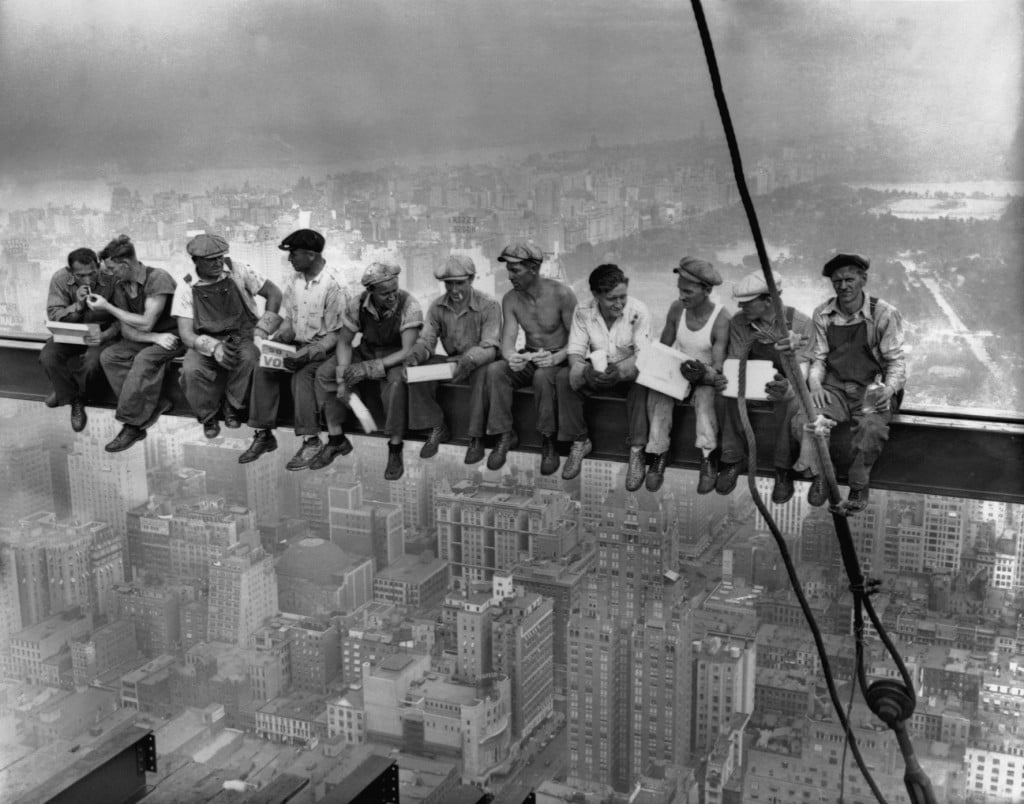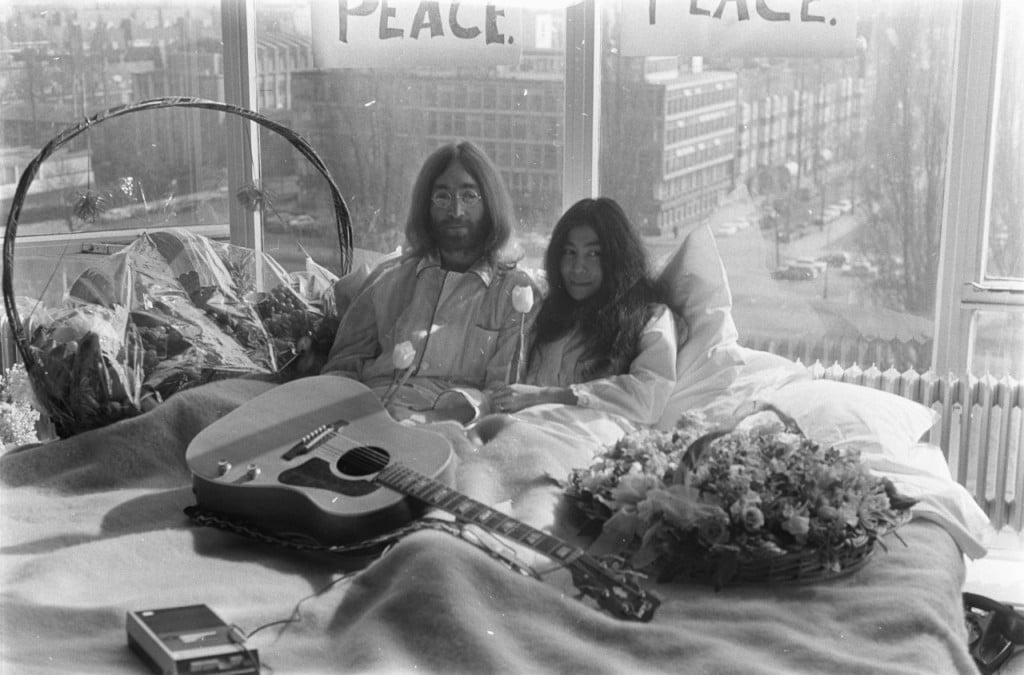What makes a man a man? What does it mean to be a “real man”? What is a man (beyond the purely biological) in the first place?
Hundreds of years ago, this question was easily answered. Masculinity was defined by the cultural paradigm in which you found yourself. There was no debate. No discussion. No deep questions.
You were a warrior, a philosopher, a farmer, an artist. Being a man was cut and dry.
But today, the answers are no longer as clear as they once were.
The definition of a real man and masculinity is elusive. Traditional masculine virtues–strength, honor, temperance, power, influence, etc–are under attack from PC culture. In one breath, men are told to express their feelings, to be in touch with their emotions, and to be vulnerable. In the next, we are told that such displays of emotion are weak or–as is the case with “negative” emotions like desire, anger, and ambition–dangerous.
We no longer understand what makes a man. We have no idea how to be a man. We have no clear directions. No mentors to whom we can turn.
And the results have been catastrophic. Men, today more than ever before, are lost, hopeless, and angry. Depression, anxiety, suicide, and senseless violent proliferate our society. And all the while, our society cries out, “Where have all the real men gone?”
And we must find an answer to this question for ourselves. We must define masculinity for ourselves.
And what better place to start than the history of masculinity? By looking at the classic masculine archetypes and analyzing their strengths and weaknesses, we can arrive at a more holistic view of masculinity that supersedes the trite claims that “real men don’t cry”.
By looking at our past, we can more effectively create a promising future.
The Industrial Man: Strength, Duty, and Diligence
Nothing has been more transformational (for better or for worse) to modern masculinity than the rise of the Industrial Revolution.
Prior to the widespread use of machines and assembly lines, men’s lives were fairly simple. Most often, they ran their own farms or had a highly-skilled trade. The man’s family was highly involved in his work. His sons would apprentice under him, his wife would manage the house, and he had close relationships with all of his neighbors.
The Industrial Revolution changed this.
Men were, for the first time in recorded history, pulled away from their homes en masse to work in factories and manage the influx of new machinery.
Fathers no longer spent time with their children or shared their work with their family. They became little more than walking ATMs who would travel (often long distances) to factories, return home, pass out from exhaustion, and wake up to do it all over again.
The Industrial Man possessed a quiet power that is rare in today’s world, but so too did he possess weaknesses that prevented him from realizing his true potential.
The Power of the Industrial Man
Men in this era were imbued with a sense of virtue and duty. Their modus operandi was simple: Get the job done on time, every time. These men were the workhorses of society. They weren’t afraid to get their hands dirty and embraced the struggle required to provide for their families.
And this was a good thing. Their sweat, blood, and tears are responsible for the unprecedented abundance and opportunities available to us today. However, instead of recognizing the virtue in their actions, we disregard them.
As a society, we’ve lost this drive. Entitlement runs rampant. Complaining and whining are the go-to response when things don’t go our way. As times have become more and more comfortable, we’ve experienced a “pussification” of the masculine spirit. Men no longer want to work. They want to have life handed to them on a silver platter.
By emulating the work ethic of the Industrial Man (in conjunction with the other traits I’ll be discussing throughout this article), we will be one step closer to rebuilding positive masculinity and being the real men our world needs.
 The Weakness of the Industrial Man
The Weakness of the Industrial Man
Although the Industrial Man’s work ethic was admirable and gave him a quiet power, it was also one of his biggest weaknesses.
Famous business guru Peter Druker has an excellent quote that summarizes this weakness:
Nothing is more useless than doing efficiently what shouldn’t be done at all
The Industrial Man didn’t challenge the status quo. He didn’t try to find better avenues to make money or explore different options. He was efficient, yes. He was great at his job. But failed to realize that hard work for the sake of hard work is not virtuous. He was broke, stuck in a paycheck prison that made it all but impossible for him to have a fulfilling and enjoyable life.
The Industrial Man was grateful to a fault, refusing to acknowledge the bleakness of factory life and resigning himself to a dull life of working on the assembly line.
His answer to the question, “How to be a man” was “Work harder” And that was it.
Although “real men” should always be thankful for the opportunities presented to them, they must never become complacent with regards to those opportunities. Instead of saying, “Wow, I’m lucky to have a job at all, I’m just going to grin and bear it,” be grateful, but unsatisfied. Be grateful for your opportunities, but don’t settle for the first thing that comes your way. Be willing to challenge the status quo and build your dream, not just someone else’s.
The Sophisticated Man (1950s): Personal Development, Financial Success, “Game”, and Misogyny
Following the unprecedented abundance and technological innovation of the world post World War II, men made an important shift in their masculine development.
For the first time in the average man’s life, he was paid to work with his mind, not his hands. This shift opened up more opportunity for men to pursue personal growth as a way to compliment professional growth. Men were encouraged to dress well, develop their confidence, learn the arts of persuasion, and broaden their education.
They retained the work ethic of the Industrial Man and began to experience financial success beyond anything their parents could have imagined.
More importantly, the Sophisticated Man wasn’t afraid to be a man. He wasn’t ashamed of his masculinity and engaged in a wide variety of masculine pursuits. He knew what he wanted and did whatever he needed to get it.
The Power of The Industrial Man
The 50’s era man took everything that was good about the Industrial Man and built on it. He worked hard, yes. But he also worked smart. He knew how to build wealth, how to achieve financial freedom, and how to get ahead.
He understood the importance of personal development, seeking out mentors, reading voraciously, and attending Universities to short up the gaps in his education. He was proud to be a man and had no shame around his desires or ambitions.
And this is something that all men in the modern world should strive to emulate.
Working hard is important, yes. But so is working on the right things. The Sophisticated Man knew this. He knew he would never build a real future working in a factory and so he devoted himself to “knowledge work” that would not only help him survive but thrive.
The Weakness of the Sophisticated Man
With all of their newfound power and success, men of this era fell prey to their egos.
They believed that they were invincible and they acted like it. Especially when it came to the way they treated women. The Sophisticated Man objectified and used women, treating them like a prize to be conquered instead of a person with whom they could share their lives.
They would often cheat on their spouses and break down their own family, constantly trying to “upgrade” their spouse by finding younger and more promiscuous partners.
Although a real man should be competent with women and know how to create an abundant dating life on command, he should never get so caught up in the game of dating that he treats women like things instead of people. And the young men of this generation understood this.
The boys raised by the Sophisticated Man saw the pain that their father’s actions caused and vowed to never make the same mistake as their dad. And this brought about a massive shift in the way that men showed up in later decades.
The Emotional Man (1960-70s): Free Love, Personal Peace, and Weakness
Capitalizing on the last generation’s greatest mistake, infidelity, the next generation, the so-called “Emotional Man”, became a master at the art of emotional expression and sensitivity.
Seeing the pain caused by his father’s generation, this man devoted himself fully to the soft skills of life. Learning how to listen, care, sense, and connect (especially with women).
For the first time in American history, men began to vehemently challenge the so-called “norm”. Instead of taking up arms and fighting for their country, they challenged the purpose of war and saw the political game for exactly what it was. They protested and fought against injustice and inequality and worked hard to rectify the wrongdoings of the past generation.

The Power of the Emotional Man
The Emotional Man stood for freedom. He taught us to challenge authority, embrace our feminine, and treat women as equals. Men started to challenge what they were taught and think for themselves. They were no longer enslaved by conventional masculine paradigms and realized that it was ok to embrace and express their emotions.
And although there were many gifts given to men as a result of this generation’s work, there were also many unintended consequences.
The Weakness of the Emotional Man
Like everything in life, masculinity works in cycles. You’ve probably heard the old quote, “Hard times make strong men. Strong men make good times. Good times make weak men. And weak men make hard times.”
The 60’s were a perfect example of this.
Men of this era became too soft. They realized that it was unacceptable to objectify and walk over women but, as a result, allowed themselves to be walked on and beaten down. They lost their drive and desire to create. Financial freedom and power were no longer seen as worthwhile pursuits, but rather the root of all societal evil.
These men lost their backbone. They lost touch with their dark emotions and desires. They became weak, senile, and spiritually impotent. Although they created positive changes our society had never seen, these changes cost men dearly. Men stifled their masculine spirit and saw aggression and ambition as vices to be overcome instead of powerful emotions to be harnessed.
As a result, they left the succeeding generation without role models of true masculinity. They were taught that men and women aren’t just equal, but the same and the masculine virtues that had been responsible for society as they knew it began to atrophy and decay.
The Wonderful Man (1980s): Financial Success, Marital Happiness, and Personal Emptiness
In the wake of the Emotional Man, the next generation realized the problems that arose from discarding traditional masculinity, and the pendulum once again swung in the opposite direction. Men of the next generation, the so-called “Wonderful Man”, seemed like they had it all.
They married the best of the Sophisticated Man and the Emotional Man, becoming everything that a woman could ask for and more.
These men were workhorses, capable of generating wealth on command and building financial freedom for themselves and their families. But they valued the success of their family above their own egos and fidelity became much more common. These men had many strengths that the modern man would do well to emulate, but they also had weaknesses that held them back from true greatness.
The Strengths of the Wonderful Man
The Wonderful Man was, well…Wonderful.
He retained the work ethic of previous generations and tempered his drive with a strong commitment to his family. He wasn’t a doormat for others like the Emotional Man, but neither did he treat others like a doormat (as did the Sophisticated Man).
He exuded an almost perfect combination of the masculine and feminine and lived out the American Dream to a “t”. But when you dig a little bit deeper, you find that an important piece of the puzzle was missing from his life.
The Weakness of the Wonderful Man
Despite his financial savvy and family values, the Wonderful Man had one crucial flaw.
Like the Emotional Man before him, he had lost his fierceness. Although he wasn’t “weak” in the same sense as the Emotional Man, the Wonderful Man had lost his fire and was disconnected from his primal self. Life became a game that centered around his net worth and the number of “things” a man could amass for his family.
Cars, boats, houses, expensive cutlery…these material possessions became the measuring stick by which a man determined his worth. And ego-driven comparison syndrome became rampant as he desperately attempted to “keep up with the Joneses”.
Although the Wonderful Man was a master of his financial and family life, he lost connection with himself. He did not develop his masculinity or pursue hobbies and activities that gave him meaning. Instead, he became a walking ATM who didn’t mind helping out with housework. He played by the rules, blindly followed authority, and lacked the visceral masculine traits that make a man a man.
This left the next generation to ceaselessly pursue wealth in order to validate their manhood. The tragedy is that no matter how much wealth they amass, they’ve lost connection with their own masculinity. Men at their best are providers. They have a presence that assures order and brings others calmness. They are strong. But the Wonderful Man forgot a foundational tenant of masculinity…strength cannot be purchased. It is earned.
The Missing Man (1990s-Today): Where Have All the Real Men Gone?
Over the past thirty years, men have become lost. They’ve gone missing from society. Instead of taking pride in their masculinity, they self-flagellate to pay penance for the crimes of the men who came before them. The Missing Man hides behind his career and claims to be endlessly “busy” so he never has to confront the cold reality that he has no clue who the fuck he is or what he wants from this life.

Modern men never discovered the roots of their masculinity. They don’t feel capable of taking responsibility and often feel guilty for being a man in the first place. They had no role models, no guidance, and, as a result, they have no clue what it means to be a man (or if there’s even such as thing as a “real man” at all).
The modern man, the “Missing Man”, does not know who he is or what he wants. He is bombarded on all fronts by messages about who he “should” be and the endless stream of stimulus and new information makes it all but impossible for him to forge his own identity.
And as a result, the modern man has resorted to a perverted form of tribalism. Desperately attempting to find a group that will give him meaning and purpose, he has lost his sense of self, his purpose, and his mission.
This man is searching for his identity, yet plays emotional games to avoid feeling the pain he claims that he does not feel.
To worsen things, oftentimes he isolates himself from other men. Missing Men often love touting the fact that they are “self-reliant and independent.” But in reality, they’re hiding. They see connection with other men as a sign of weakness.
The irony is that when a man doesn’t allow himself to connect with other strong men he will weaken and develop issues with trust, jealousy, criticism, fear and contempt towards other men.
But there is still hope.
There is a new wave of men rising from the ashes of old masculinity. Men who marry together the best traits of the men who came before them while shunning the mistakes and toxic attitudes that held them back from greatness.
I call this new breed of man the “Grounded Man”.
The Grounded Man: True Masculinity and the Future of Men
The Grounded Man has it all. He has answered the question “What is a man” eloquently and succinctly.
He is driven by concrete values and a vision for his future. He’s in touch with his primal energy but not controlled by it. He treats women as equals but does not allow them to dictate his actions or demean him. He is financially successful but is not defined by his bank account. He balances the demands of manhood brilliantly and brings together the best parts of the other men we’ve discussed.
- He is strong, even “violent” in pursuit of his goals, yet gentle with those he loves. (Industrial Man/Emotional Man)
- He respects his wife as an equal but is never dominated by her. (Wonderful Man/Sophisticated Man)
- He is fierce hearted, yet wise-minded. (Industrial Man/Sophisticated Man)
- He protects his family, acts with a sense of duty, but refuses to adhere to nonsensical tradition and doctrine (Wonderful/Emotional)
- He is a fearless individual, yet part of a larger group of men. (Industrial /Emotional)
- He is successful in his endeavors, but isn’t consumed by “success.” (Sophisticated/Industrial)
Most men consider themselves manly men because they’ve mastered one of the archetypes we just went over. They idolize whichever archetype they consider to be the coolest and shoot for it.

They predicate their masculinity on specific achievements and accomplishments instead of their own core identity. Here’s how the inner monologue goes. I’m a man because…
- I can build things.
- I can survive in the wild.
- I am financially successful.
- I am refined and charming.
- I am artistic and romantic.
- I am wise.
- Women flock to me.
- I have a cute, 1920s style mustache.
But these men fail to realize that true masculinity is not so narrow. Fixating on one of these definitions of manhood doesn’t make you a powerful man, it makes you what Garrett White calls a “one-dimensional douche bag”.
Mastering women, career, sex, fighting, survival or anything else doesn’t make you a man. Blending all of these to make the unique YOU is what makes a man truly remarkable and grounded.
You are on a journey to discover your own sense of self.
And it is your fears and discomfort that will guide you on your path to becoming a truly Grounded Man.
- Your physical body (through weight training, mixed martial arts, clean diet, sleep etc.)
- Your financial life (through entrepreneurship, investing, side hustles, and excellence in your career).
- Your romantic life (through intentional dating, mastering seduction, and committing when you’re ready).
- Your personal/spiritual life (through meditation, education, solitude, etc.)
- Your masculine spirit (through reconnecting with nature, building a band of brothers, and finding your purpose).
Start today. Identify the weaknesses in your masculine development. Identify the parts of your masculinity that make you afraid and face them head-on. This is the path to becoming a real man and the only way forward.
What is a Man and What Makes You A Real Man? The Bottom Line
True masculinity cannot be defined in one article or even in a book. It is something that is deeply personal, unique, and ineffable.
Although there are certain tenants of masculine development that all men must follow to be truly Grounded (mastery of self, body, finances, and love), the path forward is not clearly marked.
The road to becoming a Grounded Man is not paved and waiting for you. It is a trail that you must blaze for yourself. A path that you must chart both by yourself and with the help of other men.
Right now, I challenge you to identify the next step in your development. Let your fears be your guide. Burn the ships.
Wherever you are experiencing the most pain in your life–financially, romantically, physically–go there. Solve the problems that are facing you. Commit to overcoming your obstacles come hell or high water.
Refuse to be defined by the size of your biceps, your bank account, or the woman on your arm. Create your own definition of masculinity and live it to its fullest.
It is only by doing this that you will truly become a Grounded Man.
Do you want my help?
Then click here to watch my new client orientation to learn more about becoming a stronger Grounded Man, breaking free from nice guy behaviors, and creating a powerful social circle of likeminded men and a high quality romantic relationship.
Not only will you get tapped into your own “band of brothers” in my elite community of men, but you’ll also have access to the best damn course training available for men as well as weekly group calls with my team of transformative coaches. No whiny boys, complainers or dabblers, for serious men only.
If you’re ready to push the boundaries of what’s possible in your life and become the man you’ve always wanted to be. This is the fastest way to do it.









